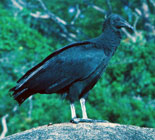 |
 |
 |
Press
"Mad Cowboy Reveals Environmental Truth about Meat"
ecomii.com
By Cherl Petso
January 14, 2009
Mad Cowboy, by Howard F. Lyman, chronicles a cattle rancher who decides to go vegan based on the horrors of meat production and the cattle industry's environmental devastation to the Earth.
Born and raised on his father's farm in Montana, Lyman was a cattle man from the start. Before taking over his father's farm, he attended college, where chemicals and hormones were the latest craze in dairy farming. Lyman threw away his father's sustainable practices and began the dangerous game of chemical farming while simultaneously buying more cattle until he had to move his stock into a feedlot. Feedlots mean more sickness, which means more antibiotics, which means more and more antibiotics as the cows quickly become unaffected by antibiotics.
Lyman played this game until a spinal tumor left him under the knife during a surgery that could kill or paralyze him. He vowed before his surgery that he would return the land to its natural state if he survived. After a miraculous operation, Lyman found himself in debt to his promise.
Lyman's promise ended up being more than he bargained for. In a long chain of events that began with a bank's refusal to loan Lyman the money needed to rejuvenate his land, Lyman began a political career as a lobbyist for the National Farmers Union in D.C. During his lobbying years, he campaigned for organic food standards and made an epiphany of his own: eating meat was killing our nation and our planet. He became a vegetarian and a vegan within a year.
The crux of Lyman's veganism is environmental responsibility. In the chapter "Bovine Planet," Lyman outlines the statistics around the correlation between cattle and environmental devastation. A few facts: "Much of the clearing and burning of forests is undertaken solely to make room for cattle." And, "Eighty percent of American grain production goes toward feeding animals." Finally, "Seventy percent of the water used in the eleven western states goes to cattle." If you don't bother with the rest of this book, read this chapter to fully understand what cattle are doing to our world.
Another critical chapter in Mad Cowboy is "The Simple Facts" in which Lyman lines out the health facts around consuming meat versus living as a vegetarian or vegan. The pesticides sprayed on the grass and grain consumed by cattle is more highly concentrated than on the crops we directly eat, therefore, when meat is consumed, the amount of pesticides ingested is much higher than one may realize. In fact, "the breast milk of a vegetarian woman contains only 1 to 2 percent of the pesticide found in their meat-eating counterparts." Lyman goes on to cite several studies that found vegetarian diets to be much healthier.
Mad Cowboy outlines information that is tough to hear, but hard to deny. Check it out and decide for yourself if he makes a campaign worthy of a lifestyle change. I know several people who have gone vegan after reading this book, so get stocked up with tofu and tempeh before reading.
 BACK TO TOP
BACK TO TOP
 |
|
 |
|
"Mad Cowboy Reveals Environmental Truth about Meat"
ecomii.com
By Cherl Petso
January 14, 2009
Mad Cowboy, by Howard F. Lyman, chronicles a cattle rancher who decides to go vegan based on the horrors of meat production and the cattle industry's environmental devastation to the Earth.
Born and raised on his father's farm in Montana, Lyman was a cattle man from the start. Before taking over his father's farm, he attended college, where chemicals and hormones were the latest craze in dairy farming. Lyman threw away his father's sustainable practices and began the dangerous game of chemical farming while simultaneously buying more cattle until he had to move his stock into a feedlot. Feedlots mean more sickness, which means more antibiotics, which means more and more antibiotics as the cows quickly become unaffected by antibiotics.
Lyman played this game until a spinal tumor left him under the knife during a surgery that could kill or paralyze him. He vowed before his surgery that he would return the land to its natural state if he survived. After a miraculous operation, Lyman found himself in debt to his promise.
Lyman's promise ended up being more than he bargained for. In a long chain of events that began with a bank's refusal to loan Lyman the money needed to rejuvenate his land, Lyman began a political career as a lobbyist for the National Farmers Union in D.C. During his lobbying years, he campaigned for organic food standards and made an epiphany of his own: eating meat was killing our nation and our planet. He became a vegetarian and a vegan within a year.
The crux of Lyman's veganism is environmental responsibility. In the chapter "Bovine Planet," Lyman outlines the statistics around the correlation between cattle and environmental devastation. A few facts: "Much of the clearing and burning of forests is undertaken solely to make room for cattle." And, "Eighty percent of American grain production goes toward feeding animals." Finally, "Seventy percent of the water used in the eleven western states goes to cattle." If you don't bother with the rest of this book, read this chapter to fully understand what cattle are doing to our world.
Another critical chapter in Mad Cowboy is "The Simple Facts" in which Lyman lines out the health facts around consuming meat versus living as a vegetarian or vegan. The pesticides sprayed on the grass and grain consumed by cattle is more highly concentrated than on the crops we directly eat, therefore, when meat is consumed, the amount of pesticides ingested is much higher than one may realize. In fact, "the breast milk of a vegetarian woman contains only 1 to 2 percent of the pesticide found in their meat-eating counterparts." Lyman goes on to cite several studies that found vegetarian diets to be much healthier.
Mad Cowboy outlines information that is tough to hear, but hard to deny. Check it out and decide for yourself if he makes a campaign worthy of a lifestyle change. I know several people who have gone vegan after reading this book, so get stocked up with tofu and tempeh before reading.

